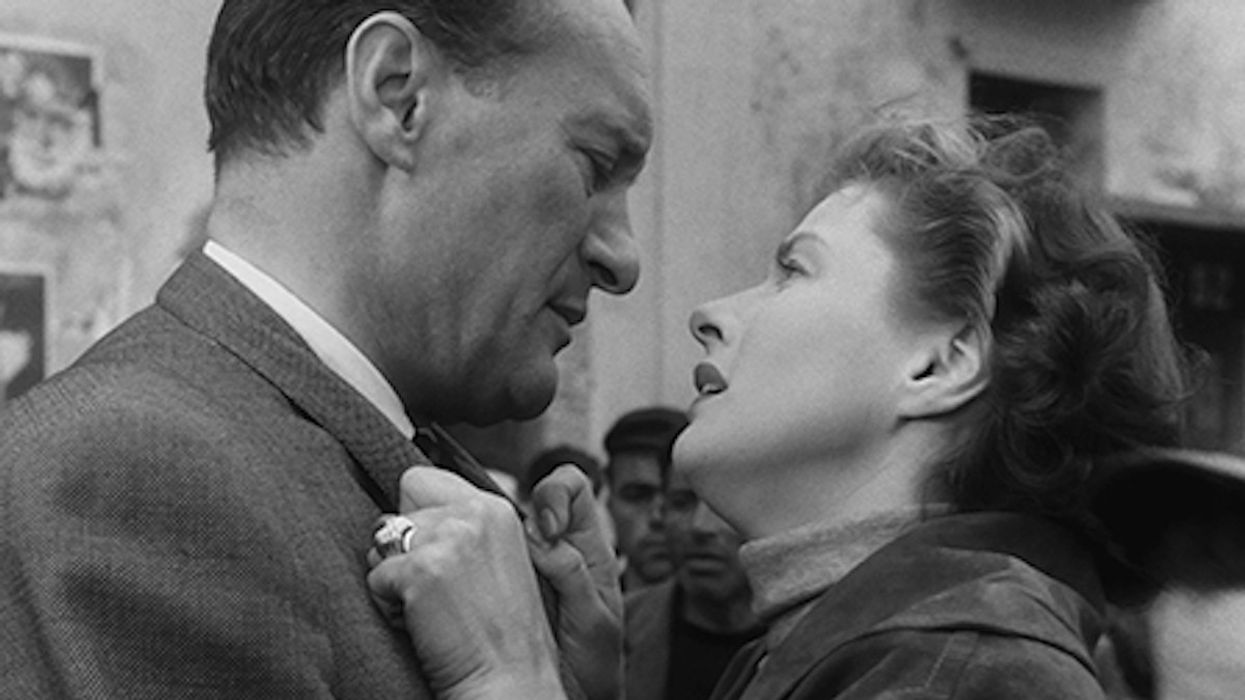Are You a Rebellious Filmmaker? Then Join Scorsese in Examining the Work of Roberto Rossellini
Martin Scorsese talks often about the films that inspired him as a director during his formative years, many of which are the work of Italian filmmaker Roberto Rossellini. In this interview with Vice and The Criterion Collection, Scorsese discusses how the director took modern cinema to the next level with his films Stromboli, Journey to Italy, and Europe '51 by rebelling against the neorealist movement.

The interesting things about writing about Rossellini rebelling against the neorealist movement is that 1. Rossellini was a neorealist filmmaker, and 2. neorealism was a direct rebellion against Italy's government-funded Telefoni Bianchi films of the 30s, which featured glamorous sets and stories about the bourgeois.
Italian neorealism marked the beginning of the Golden Age of Italian Cinema and was characterized by it's realistic cinematic approach: narratives about the lower class, long takes, on-location shooting, small budgets, and the use of non-actors. Like the French New Wave film movement in the '50s and '60s, Neorealism was film critic-born. It was in response to the ways in which WWII changed the social and economical aspects of Italy, and Rossellini was very much a part of the movement, however, as Scorsese points out, he pushed it further, experimented with it, and the result were the three films listed above. Though these films were considered complete rejections of the neorealist movement, and weren't received as well then as they are today, they influenced countless filmmakers' work, including that of Scorsese.
If you're not a cinema history junky like myself and need a more practical application for Scorsese's interview, his points on Rossellini's attention to intimacy are important for the sheer fact that films in Italy at the time were differently intimate. We got to see the private lives of the poor in a very real way in De Sica's archetypal neorealist film Bicycle Thieves, but Rossellini managed to take the Classic Hollywood film style and apply the authenticity that was characteristic of neorealism -- a feat that isn't easy. Essentially, he rebelled and made a different kind of neorealist film.
Though these films are technically considered neorealist, we can see where Rossellini experimented with the archetypes. If you compare Stromboli to Bicycle Thieves for example, Stromboli had 7 times the budget of Bicycle Thieves, used a famous Hollywood star as a lead, Ingrid Bergman (Bicycle Thieves used non-actors), and features a character that wasn't a direct product of the unrest in war-torn Italy, rather a Lithuanian expatriate. Rossellini continued with his experimentation with form and content despite these films being panned, adding to his filmography works that would make him a legendary director.
We know that cinema, like anything, has a way of creating rigid grooves, homogenizing, and sticking to trends, but so many of the greatest films ever made we done so out of rebellion -- out of a filmmaker just trying something new. The lesson: continue pushing the boundaries of not only the medium, but of your own sensibilities. Experiment with structure, content, and form. Grow from what you discover. Rebel against the norm. Rebel against yourself.
What are some of your favorite filmmaking rebels? Let us know in the comments.
Source: Vice











